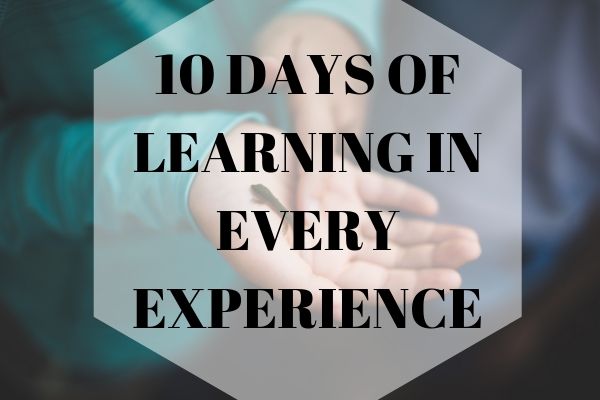Moving to a new home can be a stressful and somewhat overwhelming time for a family. It can be hard to fit in more traditional learning opportunities in between packing and sorting and then unpacking and organizing. But here are some ways how moving to a new home is a learning opportunity.

Moving Teaches Organization Skills
One of the biggest things about moving is the need to touch every single item in your home and decide if you are keeping it, donating it, or tossing it. Purging is a wonderful skill to teach your children and for them to experience for themselves with their own belongings because they are going to need to be able to do this through their whole lives.
For the stuff they choose to keep, they need to figure out how to best pack them – do they organize boxes by item? Or by daily use? Or by durability? These are interesting conversations to have.
On the other side, once the move is complete, getting settled into a new room requires some planning as to the layout of furniture. Where should they put their bed in the room in order to fit in a dresser, a desk, their toys, or anything else they need without having a room that feels cramped and nonfunctional?
Unpacking and finding homes for things to make sure that everything is usable is another great part of teaching or providing opportunities for developing organizational skills: sorting books in whatever way works best for your family, finding homes for the dishes so that everyone can easily find a cup for a drink, creating spaces for toys so that they are easy to keep tidy – these are all things kids can help with as you settle into your new home.
Moving IS a Geography Lesson
Getting to know your new community is a huge geography learning experience. Figuring out where all the key features of your new town are involves a lot of mapping skills – even if you don’t draw it out. Where is the grocery store? The post office? The pizza place? Is there a playground or park? A library? Any other important buildings you should know about?
What is the population of the place you are moving to and how different is that from where you lived before? Are you moving into an urban place or a rural place and what makes them different?
How do you navigate your new location – can you walk everywhere you need to? Is public transit available or do you need to drive everywhere?
The farther you move, the more you need to learn about your new location. For example, if you moved from Charlottetown to Vancouver, you are going to experience a huge amount of change – from a slow-paced life on an island to a hurried life of a major city. Never mind that there are mountains in BC, the cost of living is much higher, and there isn’t as much open green space. If you move to another country, you need to learn and adapt to a new culture, which can be a fun experience all on its own.
Moving Develops Socialization Skills
Anyone who has moved with a family is more than aware of how important it is to have constant and clear communication with everyone. There needs to be understanding of what is expected and needed during this time. This includes the children too – because they are actively involved in the process. Learning how to talk about their feelings of change is important, along with making sure they understand what they need to do to make the move easier.
Moving involves teamwork – from the packing to unpacking, and especially on moving day as things are being navigated around. Everyone has important jobs to do and if they don’t complete those jobs, someone else has to step out of their tasks to complete it – causing a ripple effect of problems.
Learning how to say goodbye to old friends (even when it is hard) is a skill that will help them in life, as well as figuring out and following through with ways to stay connected even when they don’t live close by anymore.
In a new neighbourhood, it’s a great opportunity to develop social skills as you meet your neighbours and new friends in the community, as well as participating in different festivals, clubs, and activities that are available in your new location. There are lots of opportunities to connect with new people – you just have to be willing to try them out!
Moving Requires Fitness
Even the youngest of children can help with the physical part of moving. They may not be able to carry lots of heavy things, but they can carry a backpack of their favourite toys and snacks and drag things like blankets around. They can even shove light boxes across the floor.
As for everyone else, moving requires a lot of physical activity – from carrying heavy furniture out of the old house and into the new, but also with the many boxes and bags that come with moving. It’s a long day and requires a lot of endurance, but think of the workout!
Moving Offers Chances For Creative Thinking
I think the most common thought I’ve had whenever we’ve moved (or helped other people move) was to be thankful for the hours of playing video games like Tetris and Dr. Mario when I was a kid because it’s enabled me to think creatively about how things can fit into spaces. It makes moving so much easier when you can think creatively to get everything into a truck. Getting your kids to help come up with ideas on how to fit things in is a great way to help develop their creative thinking skills.
Visualize or laying out their new rooms is fun too, along with thinking of how they can decorate their rooms can be a fun activity too.
Other Ways Moving to a New Home is a Learning Opportunity:
There are other ways of how moving to a new home is a learning opportunity, too, depending on your family.
- For example, maybe your children need to learn how to adapt to sharing a room (or to having their own room!).
- If you have pets, they might need help with the transition of change and your family will have to learn how to best make it less stressful for them.
- Settling into a new place often means your family has to get into a new routine for every day – this is an opportunity to help your children participate in planning different areas of your life together – how do they want to do school / eat meals, etc? It’s the perfect time to implement chores that may have gotten dropped in the past or to give your children new roles – like being in charge of their own laundry, etc.
Moving may be stressful and take a lot of work, but at least you know that you can still get some learning out of the experience, even while the schoolbooks are packed.
This post is part of a 10 day series all about learning through every experience. Join me as we look at different ways kids learn outside of a textbook and workbook – just by experiencing life.
- How to Keep a Toddler Busy While Homeschooling - March 21, 2024
- 25+ Things Your Kids Learn From Video Games - March 20, 2024
- 10 Words For New Homeschoolers - March 20, 2024

